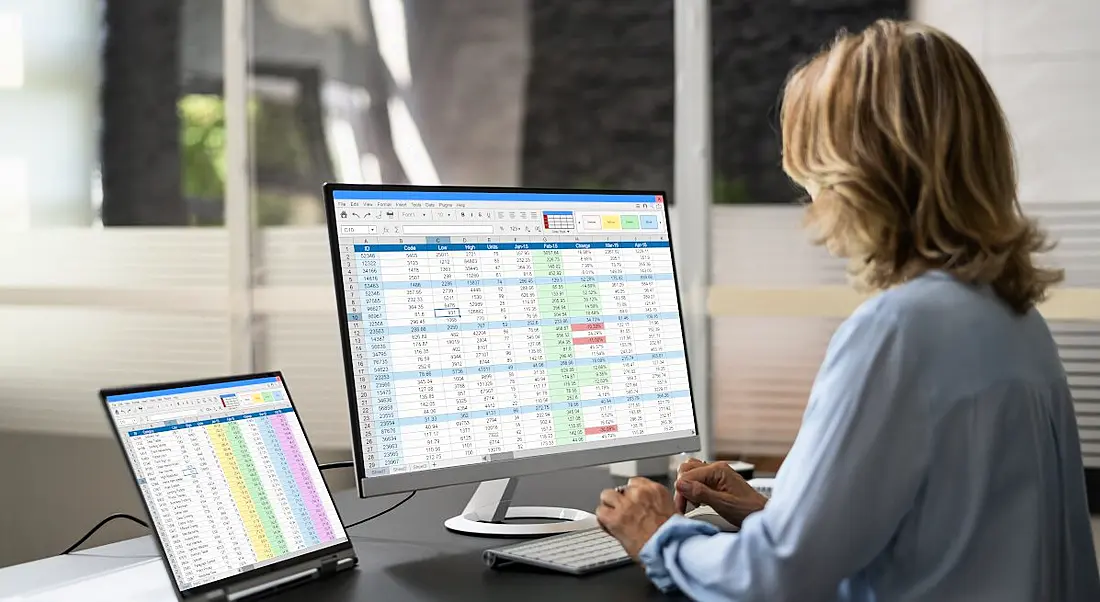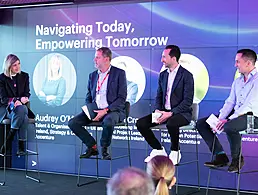Kate O’Meara, data science manager at Accenture, advises women thinking of applying to the accelerator not to underestimate themselves or what they can bring to the table.
If you’re a woman with an interest in data and analytics, you might consider applying to take part in a free, six-week course aimed at women who want to become leading data scientists.
The Women in Data Science accelerator programme is being run by professional and digital services firm Accenture.
Participants will have the opportunity to meet other women interested in data science, as well as attend industry-led lectures and workshops.
The sessions will focus on building confidence and informing participants of career opportunities. There will also be sessions on how to convey the technical skills of a data scientist to potential employers.
According to Kate O’Meara, data science manager at Accenture, the programme has a specific goal to increase the percentage of women working in data science.
The company started running it in 2019, she explained. “About 20pc of data scientists are women, with this gap increasing as you progress into leadership positions. This statistic is mirrored across most careers in STEM.”
O’Meara continued: “By helping participants better understand the career options as a data scientist and how to excel in that career, we hope to see the percentage of women working in data science careers increase over time, giving rise to more opportunities for female role models and in turn making it more appealing and easier for women to consider a career as a data scientist in the future.”
According to some of Accenture’s in-house research, 82pc of participants from the 2019 cohort said they felt more equipped to make a career move into data science while 100pc said they would recommend the course to others.
O’Meara pointed out that the connections the women on this year’s programme will make will stand to them as they progress in the industry.
As a woman working in data science herself, O’Meara has her own advice for others thinking of getting into the industry.
“My advice to any woman considering applying for this programme (or for a job in data science) is not to underestimate your own skills and what you can bring to the table,” she said.
“As women, we need to back ourselves and understand that we, too, have the skills required to succeed in this industry.”
While O’Meara knows that the percentage of women in data science can’t “change overnight”, she said that she and her colleagues at Accenture are trying to turn that tide.
Kate O’Meara. Image: Accenture
O’Meara also explained that a career in data science can take many forms – and, as a result, it can be “difficult to pinpoint what a ‘typical’ career would look like”.
“With such a broad range of specialities, technologies and industries that utilise data science, there’s a lot of opportunity to carve out a career that best aligns with your skills and interests,” she explained.
“That might be optimising a process for a pharmaceutical company, developing a predictive model for which customers will cancel their phone plans, or natural language processing to understand online reactions to a marketing campaign.”
She added that her favourite part of working in data science right now is the challenge of communicating the story behind the data.
“While lots of people understand the value of data, it’s our job to understand the data itself and bring others on that journey with us.”
The programme runs in the evenings for two hours, starting from 22 February. It will be based at Accenture’s The Dock building on Hanover Quay in Dublin city. Those interested have until 8 February to send their applications in, and spaces are limited.
Accenture will notify successful applicants of their acceptance to the programme by 15 February.
To apply, see Accenture’s website.
10 things you need to know direct to your inbox every weekday. Sign up for the Daily Brief, Silicon Republic’s digest of essential sci-tech news.




